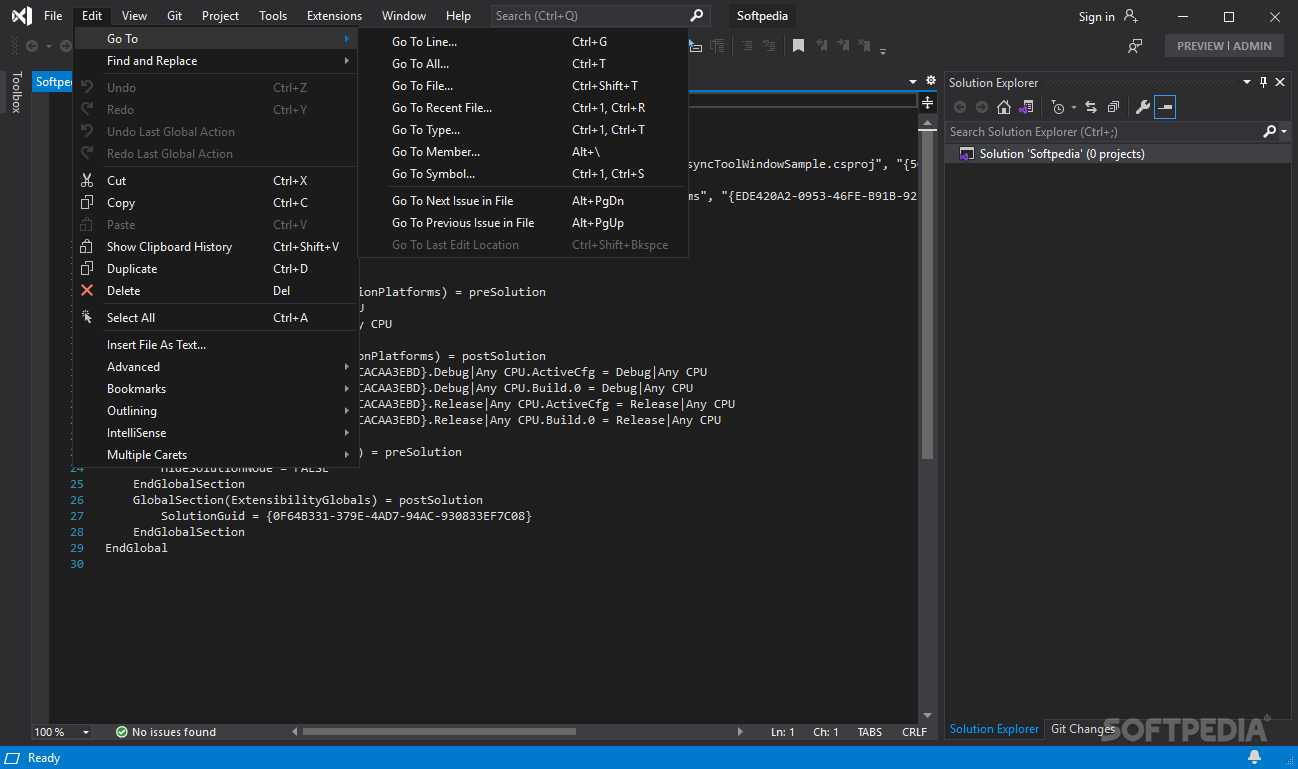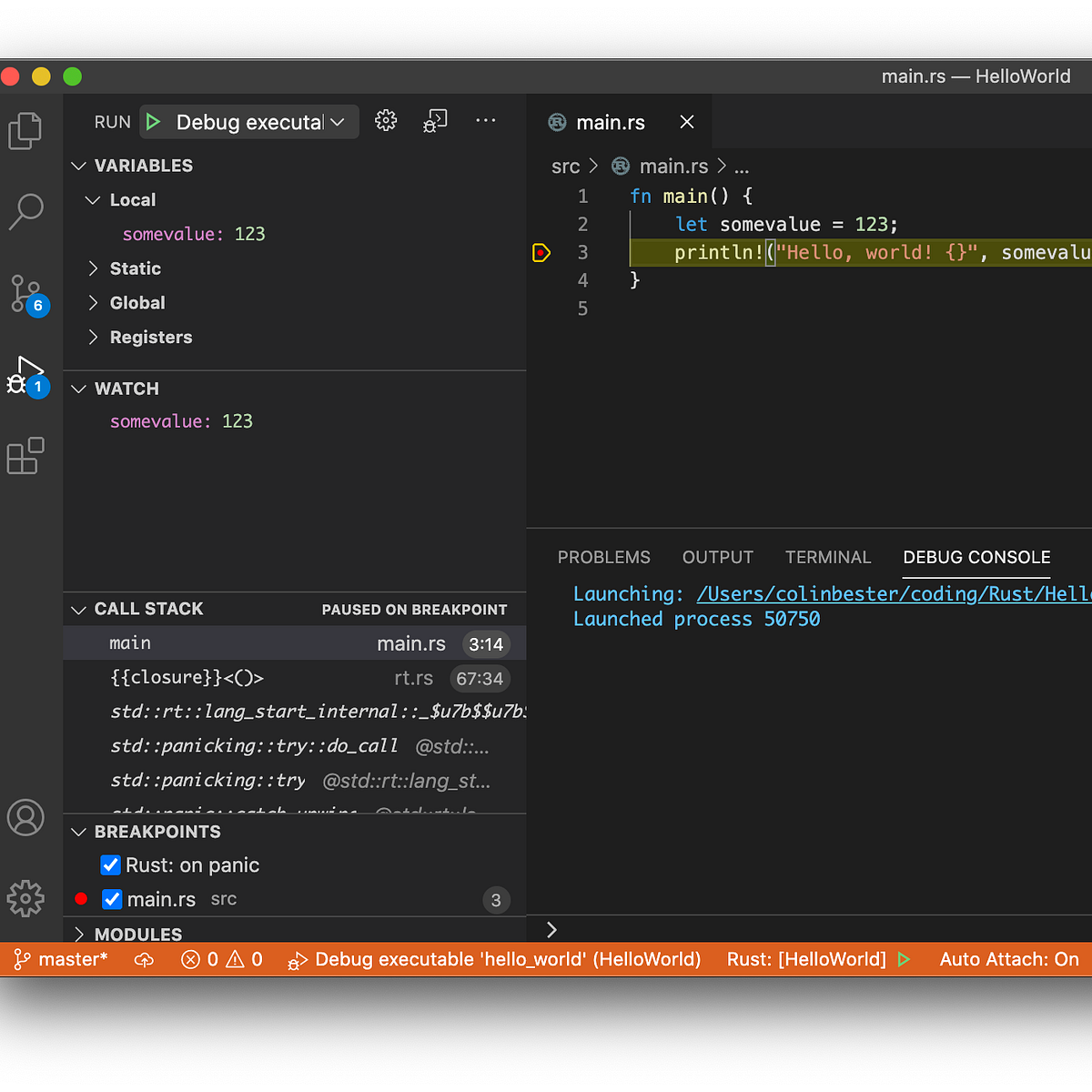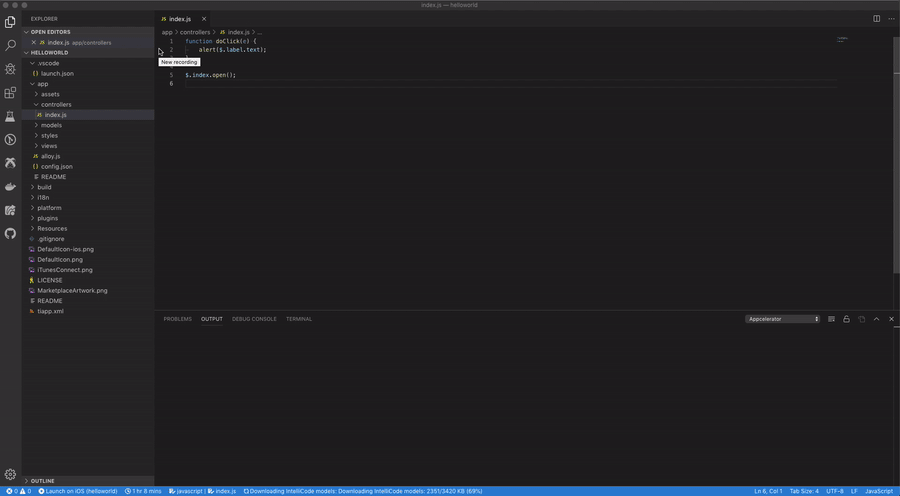For Mac OSX: There is a way to install Visual Studio Code through Brew-Cask. First, install 'Homebrew' from here. Now run following command and it will install latest Visual Studio Code on your Mac. $ brew cask install visual-studio-code. Above command should install Visual Studio Code and also set up the command-line calling of Visual Studio.
APPLIES TO: Azure SQL Database Azure SQL Managed Instance
Visual Studio Code is a graphical code editor for Linux, macOS, and Windows. It supports extensions, including the mssql extension for querying a SQL Server instance, Azure SQL Database, an Azure SQL Managed Instance, and a database in Azure Synapse Analytics. In this quickstart, you'll use Visual Studio Code to connect to Azure SQL Database or Azure SQL Managed Instance and then run Transact-SQL statements to query, insert, update, and delete data.
Prerequisites

A database in Azure SQL Database or Azure SQL Managed Instance. You can use one of these quickstarts to create and then configure a database in Azure SQL Database:
Action Azure SQL Database Azure SQL Managed Instance Create Portal Portal CLI CLI PowerShell PowerShell Configure Server-level IP firewall rule) Connectivity from a virtual machine (VM) Connectivity from on-premises Load data Adventure Works loaded per quickstart Restore Wide World Importers Restore or import Adventure Works from a BACPAC file from GitHub Important
The scripts in this article are written to use the Adventure Works database. With a SQL Managed Instance, you must either import the Adventure Works database into an instance database or modify the scripts in this article to use the Wide World Importers database.

- Why Does This Exist. Microsoft’s vscode source code is open source (MIT-licensed), but the product available for download (Visual Studio Code) is licensed under this not-FLOSS license and contains telemetry/tracking. According to this comment from a Visual Studio Code maintainer. When we Microsoft build Visual Studio Code, we do exactly this. We clone the vscode repository, we lay down a.
- Open visual studio code from terminal mac; brew install npm; brew install openssl 1.0; how to install latest composer in mac; install cocoapods; mac host file; zsh create alias; copy public key mac; check laptop mac address; port finding in macos; install mongodb in mac; snap install android studio; brew install virtualbox; nano.zshrc; rvm.
Install Visual Studio Code
Make sure you have installed the latest Visual Studio Code and loaded the mssql extension. For guidance on installing the mssql extension, see Install Visual Studio Code and mssql for Visual Studio Code.
Configure Visual Studio Code
macOS
For macOS, you need to install OpenSSL, which is a prerequisite for .NET Core that mssql extension uses. Open your terminal and enter the following commands to install brew and OpenSSL.
Linux (Ubuntu)
No special configuration needed.
Windows
No special configuration needed.
Get server connection information
Get the connection information you need to connect to Azure SQL Database. You'll need the fully qualified server name or host name, database name, and login information for the upcoming procedures.
Sign in to the Azure portal.
Navigate to the SQL databases or SQL Managed Instances page.
On the Overview page, review the fully qualified server name next to Server name for SQL Database or the fully qualified server name next to Host for a SQL Managed Instance. To copy the server name or host name, hover over it and select the Copy icon.
Set language mode to SQL

In Visual Studio Code, set the language mode to SQL to enable mssql commands and T-SQL IntelliSense.
Open a new Visual Studio Code window.
Press Ctrl+N. A new plain text file opens.
Select Plain Text in the status bar's lower right-hand corner.
In the Select language mode drop-down menu that opens, select SQL.
Connect to your database
Use Visual Studio Code to establish a connection to your server.
Important
Before continuing, make sure that you have your server and sign in information ready. Once you begin entering the connection profile information, if you change your focus from Visual Studio Code, you have to restart creating the profile.
In Visual Studio Code, press Ctrl+Shift+P (or F1) to open the Command Palette.
Select MS SQL:Connect and choose Enter.
Select Create Connection Profile.
Follow the prompts to specify the new profile's connection properties. After specifying each value, choose Enter to continue.
Property Suggested value Description Server name The fully qualified server name Something like: mynewserver20170313.database.windows.net. Database name mySampleDatabase The database to connect to. Authentication SQL Login This tutorial uses SQL Authentication. User name User name The user name of the server admin account used to create the server. Password (SQL Login) Password The password of the server admin account used to create the server. Save Password? Yes or No Select Yes if you do not want to enter the password each time. Enter a name for this profile A profile name, such as mySampleProfile A saved profile speeds your connection on subsequent logins. If successful, a notification appears saying your profile is created and connected.
Query data

Run the following SELECT Transact-SQL statement to query for the top 20 products by category.
In the editor window, paste the following SQL query.
Press Ctrl+Shift+E to run the query and display results from the
ProductandProductCategorytables.
Insert data
Run the following INSERT Transact-SQL statement to add a new product into the SalesLT.Product table.
Replace the previous query with this one.
Press Ctrl+Shift+E to insert a new row in the
Producttable.
Update data
Run the following UPDATE Transact-SQL statement to update the added product.
Replace the previous query with this one:
Press Ctrl+Shift+E to update the specified row in the
Producttable.
Delete data
Run the following DELETE Transact-SQL statement to remove the new product.
Replace the previous query with this one:
Press Ctrl+Shift+E to delete the specified row in the
Producttable.
Next steps
- To connect and query using SQL Server Management Studio, see Quickstart: Use SQL Server Management Studio to connect to a database in Azure SQL Database and query data.
- To connect and query using the Azure portal, see Quickstart: Use the SQL Query editor in the Azure portal to connect and query data.
- For an MSDN magazine article on using Visual Studio Code, see Create a database IDE with MSSQL extension blog post.
Visual Studio Code is a lightweight code editor with support for many programming languages through extensions
Installation
To install the latest version, use Homebrew:
macOS integration
Launch VS Code from the command line.
After that, you can launch VS Code from your terminal:
Brew Uninstall Visual Studio Code
code .will open VS Code in the current directorycode myfile.txtwill openmyfile.txtin VS Code
Useful Extensions
Python
Python - Python code highlighting
To enable auto-formatting on 'Save', i.e.
⌘ + S, configure the following:Change the default formatter to
Blackinstead ofAutopep8. Critical to avoid large diffs. Go to Preferences -> User Settings and update the settingpython.formatter.providertoBlackEnable
Format on SaveSetting: Editor: Format On Save setting on Code -> Preferences -> Settings
JavaScript
- ESLint - Useful to check JavaScript errors and helps in auto-formatting the code
- Prettier - JavaScript code formatter
SQL
Markdown
- Markdown Preview - Read Markdown files in VSCode
GitLens
- GitLens - Supercharge the Git capabilities built into VSCode

Docker
- Docker - Create, manage, and debug images from within VSCode
JSON
Brew Install Visual Studio Code
- Paste JSON as Code - Infers types from sample JSON data, then outputs strongly typed models and serializers for working with that data in your desired programming language
Live Server
- Live Server - Launches a local development server with live reloading for both static and dynamic
VS Code Icons
Visual Studio Code Brew 2019
- vscode-icons - Adds unique icons to distinguish different file extensions (easier to glance through your directories)
